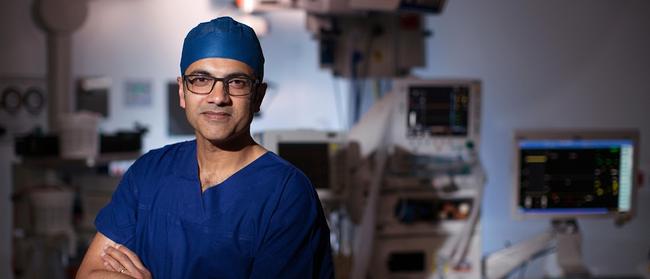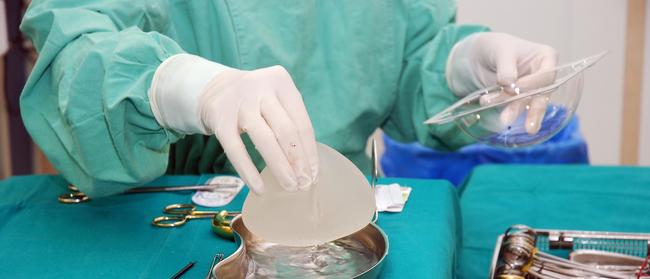Breast implants linked to cancer still sold in Australia
Breast implants linked to cancer are still on sale in Australia even though the US regulator has called a public meeting to discuss their safety and they have been removed from shelves in Europe.
Illness
Don't miss out on the headlines from Illness. Followed categories will be added to My News.
Exclusive: Breast implants linked to cancer are still on sale in Australia even though the US regulator has called a public meeting to discuss their safety and they have been removed from shelves in Europe.
France’s medical watchdog suspended the CE (Conformité Européenne) safety approval for the popular rough textured Allergan Biocell breast in December last year.
Now the US regulator, the Food and Drug Administration (FDA) is planning a meeting next week to discuss breast implant associated cancer and auto-immune diseases and the use of registries to track problems with the implants.
Australia’s regulator, Therapeutic Goods Administration, convened its breast implant expert reference group on January 30 to discuss the current situation with Allergan’s Biocell implants but decided to continue to allow them to be sold here.
Allergan can only sell Biocell breast implants manufactured before December 17, 2018 (the date it lost the CE mark in Europe) in Australia.
“The clinicians and experts all agree that further evidence is required to determine the exact pathogenesis and therefore any changes to clinical and regulatory activity,” the TGA said.

A leading Australian researcher in the area — plastic surgeon Professor Anand Deva — is calling for it to be made mandatory for Australian doctors to report cases of the rare cancer to the TGA.
“The cases are coming in thick and fast now, two were diagnosed last week,” he told News Corp.
A new study by Australian plastic surgeons Professors Deva and Mark Magnusson has found a 47 per cent increase in the number of rare cancers cases linked to all breast implants in Australia.
The total number of confirmed cases in Australia has increased to 81 and three of the patients have died.
Professor Deva told News Corp “you would be a brave surgeon to use implants without a CE mark”.
“I’m not using them, I only used them very occasionally. I think people are voting with their feet,” he said.
TSUNAMI OF BREAST CANCER LINKED TO BREAST IMPLANTS
BREAST SURGEONS ON PAYROLL OF MEDICAL DEVICE COMPANIES
Around 20,000 Australian women a year have breast implants fitted after cancer surgery or for cosmetic purposes and four in 10 use Allergan’s Biocell product, 61 of these implants have been associated with rare cancer BIA ALCL in Australia.
The risk of a woman developing this cancer is 16.5 times higher if they have the Biocell implant compared with the smooth Siltex implant.
Women fitted with the now banned Silimed Polyurethane breast implants have a 23.4 times higher risk of BIA ALCL cancer.
BIA-ALCL is not breast cancer — it is a type of non-Hodgkin’s lymphoma (cancer of the immune system).
Allergan says it stands by the benefit/risk profile of its breast implant products and is working to renew its CE mark.
The French has not identified any immediate risk to the health of women with textured breast implants, the company says.

Doctors are predicting a surge in cancer cases in the near future because of a rise in the number of implants and because these implants were the most common type used in booming discount surgery clinics.
Plastic surgeons are advising Australian women not to panic and say they do not need to have the devices removed unless a check up reveals problems.
News Corp has been campaigning for new rules to ensure plastic surgeons check every woman with breast implants for the cancer every 12 months.
We have been calling for a registry that would show payments medical device companies make to plastic surgeons that could influence the type of breast implants they recommend to patients.
State health minsters began a push last year to get every breast implant recorded on a breast implant registry to help track cancer cases.
The Australian Breast Device Registry now contains over 38,000 patients over 400 surgeons with approximately nine in 10 of those implanting these devices now reporting to it.
The Health Department says it has been working with the Medical Technology Association of Australia (MTAA) to develop a proposal on a practitioner payment transparency scheme. MTAA are currently consulting with its members.
Originally published as Breast implants linked to cancer still sold in Australia


